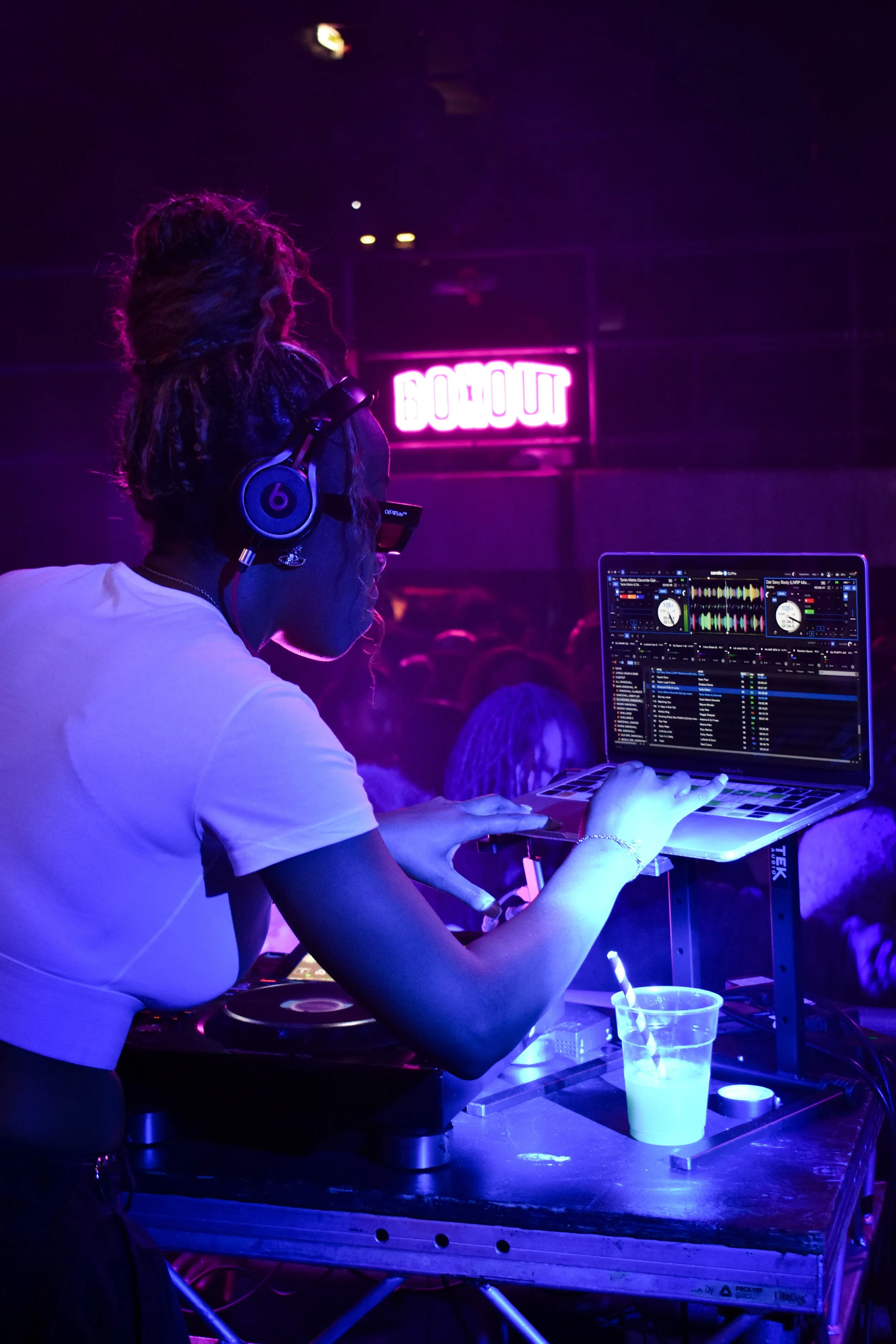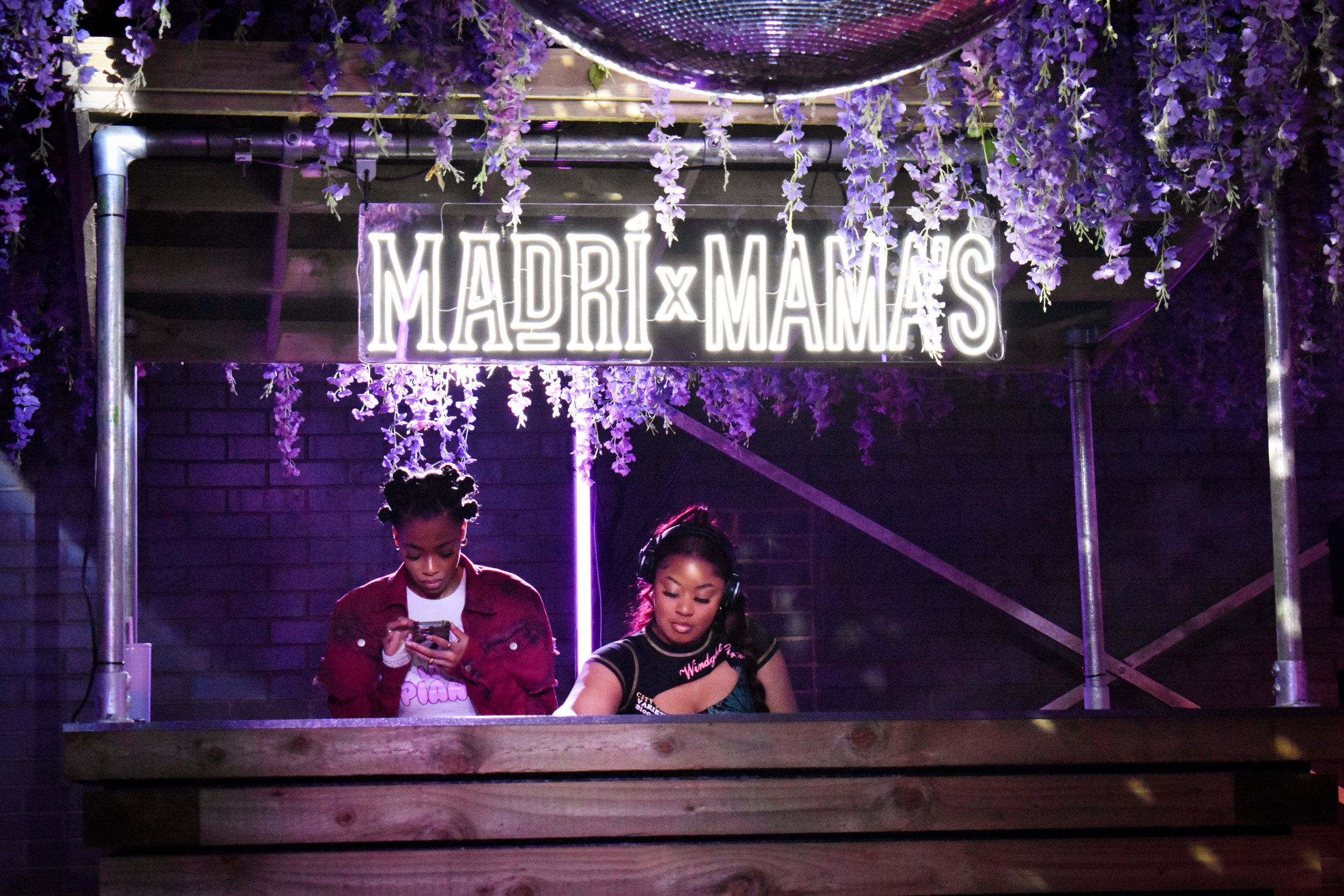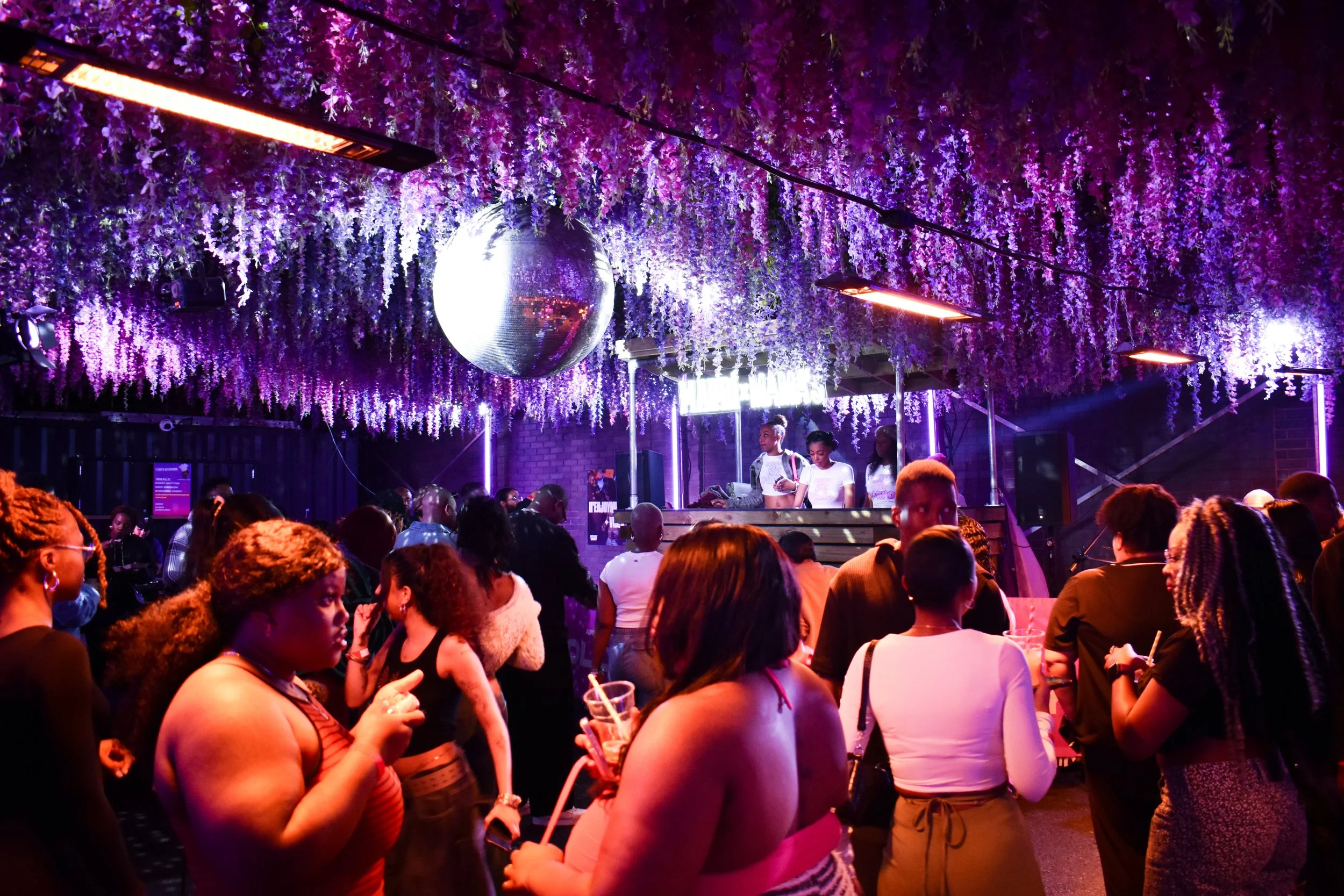Turn the Tables: Women Reshaping the Music Industry
Happy International Women’s month!23rd March 2025
Written and photography taken by Anusha Chandra-Paisley
Boxout in Full Force: Celebrating International Women’s Month
International Women’s Day is more than just a date on the calendar, it’s a moment to honor the contributions of women across industries, and the music world is no exception. This year, Boxout (@boxout_uk) made a bold statement with an all-female/non-binary DJ lineup, proving once again that the future of music is diverse, powerful, and inclusive. The lineup consisted of: DJ Danni (@djdannixo), Valentine (@v1tne), 90s Bella (@90s), McThickum (@mcthickum), Anj Kay (@anj.kay), Tazmania (@trou66le), DJ Ruv (djruv__), DJ Eza (@djwitheza), Tiannah (@tiannahx_), DJ Debs (@djdebsss), Daphfinee (@daphfinee), DJ Nabz (@nabz.dj). The two hosts were: Ayooniks (@ayooniks) and Natty Tha Vibe (@nattythavibe). The event held at Mama Roux’s (B9) was a celebration of talent, community, and progress. Attendees witnessed electrifying sets from some of the most exciting female and non-binary DJs in the scene, each bringing their unique sound to the decks. The energy was undeniable, the dance floor packed, and the message clear: marginalised genders belong in every space in music, from behind the decks to the boardrooms shaping the industry.
But this wasn’t just about one night - it was about a movement that has been building for decades.
A History of Breaking Barriers
Women have been at the heart of music for centuries through composing, performing, producing, and shaping its evolution. Yet, their contributions have often been minimised, erased, or overshadowed by their male counterparts. From early blues and jazz pioneers to modern-day DJs and executives, women have continuously fought for space in an industry that has historically tried to push them to the sidelines. Their resilience, innovation, and talent have not only changed music but also challenged societal norms.
Early Pioneers: Trailblazing Women in Music
Before mainstream recognition, women like Sister Rosetta Tharpe, the “Godmother of Rock & Roll,” were already laying the foundation for entire genres. Tharpe’s electrifying performances influenced legends like Chuck Berry, though her contributions were often overlooked. Ma Rainey and Bessie Smith, icons of blues, paved the way for jazz, rock, and soul, using their music to challenge societal norms. Ella Fitzgerald redefined jazz with her groundbreaking vocal technique, proving women could be virtuoso musicians in a male-dominated industry. These women were not only musical innovators but also social disruptors, using their art to challenge racial and gender norms.
The Rise of Women in Popular Music
By the mid-20th century, women gained more visibility but still faced industry resistance. Aretha Franklin’s Respect became a defining anthem for both Black and women’s empowerment. Joni Mitchell defied industry expectations with genre-blending songwriting, while Donna Summer dominated disco, proving women’s power in dance music. Behind the scenes, Sylvia Robinson played a pivotal role in hip-hop’s rise, producing Rapper’s Delight and proving that women could control the business as well as the sound.
DJs, Producers, and the Electronic Music Revolution
As the digital age took over, women began to dominate in production and DJing, an area still largely male-dominated. Delia Derbyshire, an early pioneer in electronic music, created the iconic Doctor Who theme song. Laurie Spiegel and Suzanne Ciani shaped electronic sound, though often overlooked. DJ Minx and K-Hand were key in shaping Detroit techno, proving that women played a critical role in the underground dance scene. Today, artists like Helena Hauff, The Blessed Madonna, Honey Dijon, and Peggy Gou continue to push boundaries, though challenges for women and non-binary artists persist.
The Fight for Recognition Continues
Despite the strides women have made, the music industry still struggles with gender inequality. Women and non-binary professionals are vastly underrepresented in production, festival bookings, and executive positions. According to recent studies, less than 5% of music producers are women, and female artists still receive less airplay and financial backing compared to their male counterparts.
As history has shown, women in music have always found ways to innovate, break barriers, and redefine the rules. The industry may still have work to do, but one thing is certain: women aren’t waiting for permission anymore. They are taking the stage, the decks, and the boardrooms - on their own terms.
That’s why events like Boxout’s International Women’s Day celebration are so crucial. They go beyond just putting women on stage. They actively create space for them to be seen, heard, and celebrated in an industry that has historically marginalised them. By curating a lineup exclusively of female DJs, Boxout sent a powerful message: women and non-binary artists belong in music, not as an exception, but as a driving force shaping its future.
The event itself was a night fueled by high-energy sets, genre-blending performances, and an electric atmosphere, with women fully in control of the sound. Featuring a carefully curated lineup of all-female DJs, the night highlighted some of the most exciting talents in the underground electronic music scene. From smooth R&B to dancehall that had the whole crowd moving in sync, vibrant Afrobeats to unapologetic rap, each DJ brought their own unique style, proving that diversity in sound is just as important as diversity in representation.
More than just music, it was about reclaiming space, building community, and fostering an environment where women and non-binary DJs felt empowered to take center stage. The crowd was an essential part of the experience, with people showing up not just to dance, but to support and celebrate the artists. There was an undeniable sense of solidarity in the room, one that echoed the larger movement toward gender inclusivity in the music industry.
As we move forward, the challenge is to ensure that efforts like this aren’t confined to just one day a year. The industry must continue pushing for equal opportunities, fair representation, and proper recognition of women’s contributions; on and off the stage.
This International Women’s Day, Boxout didn’t just celebrate women in music. They amplified a movement. And if the energy of this event is any indication, the future of music is undeniably bold, boundary-breaking, and led by women.











